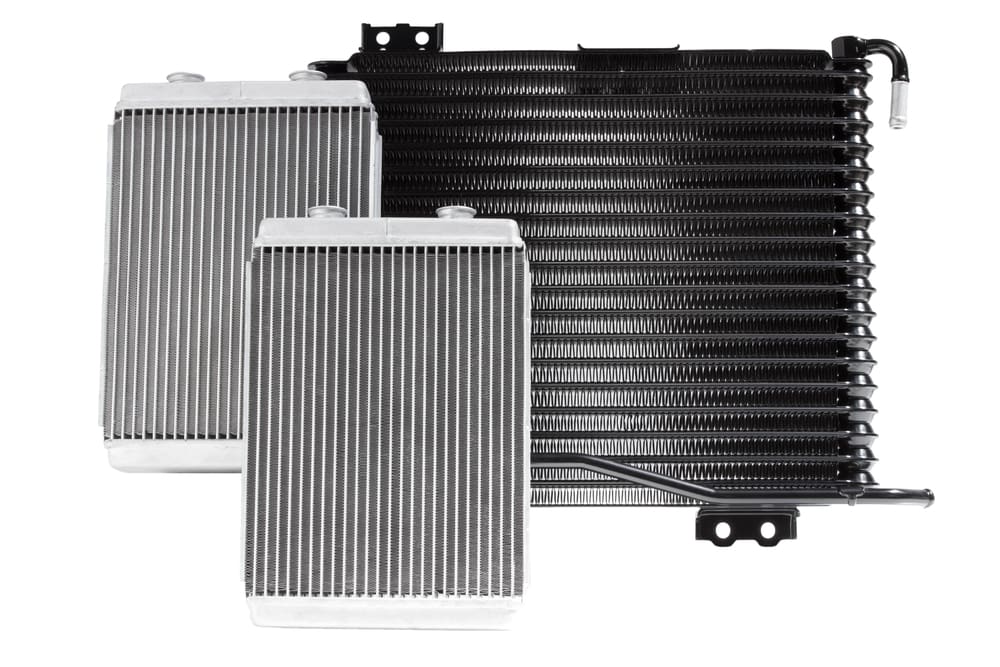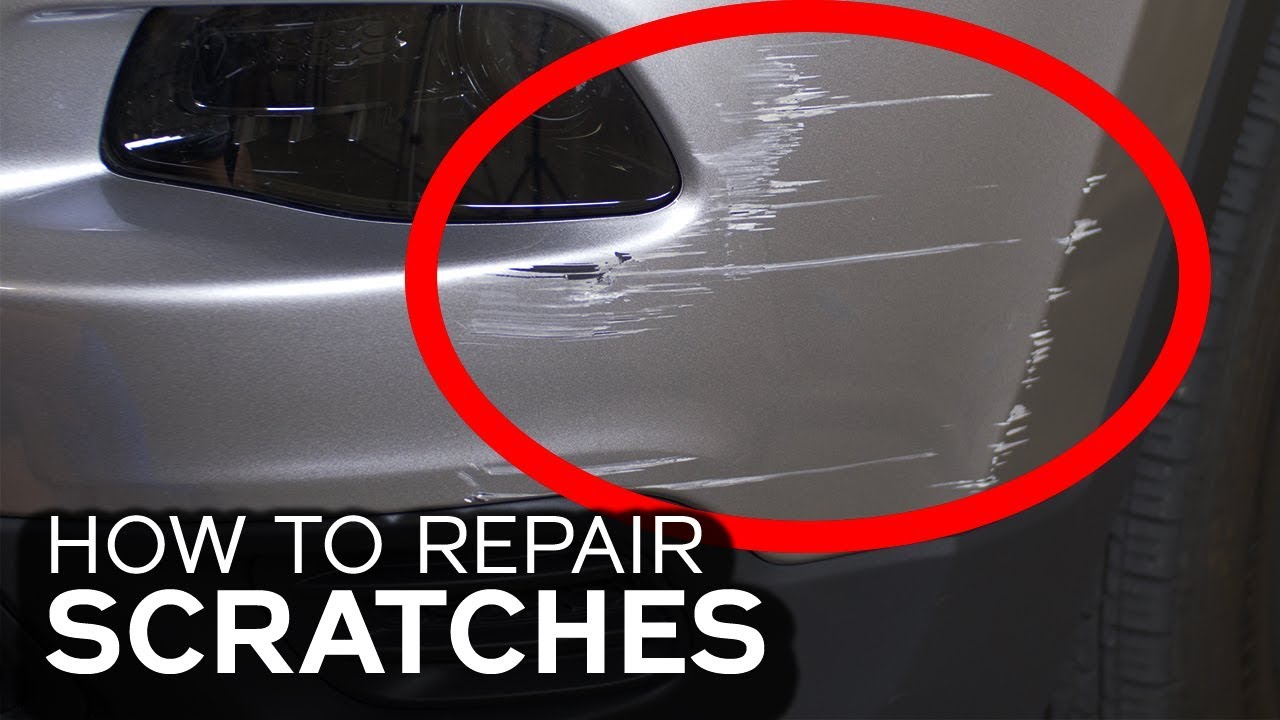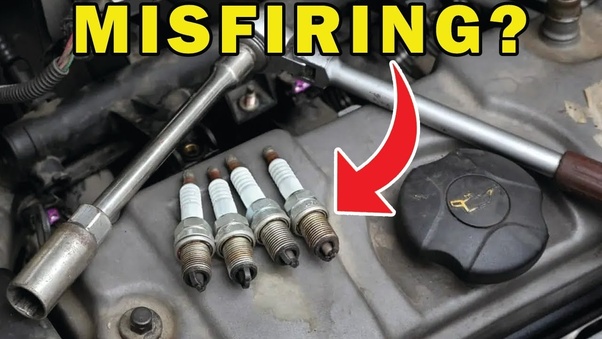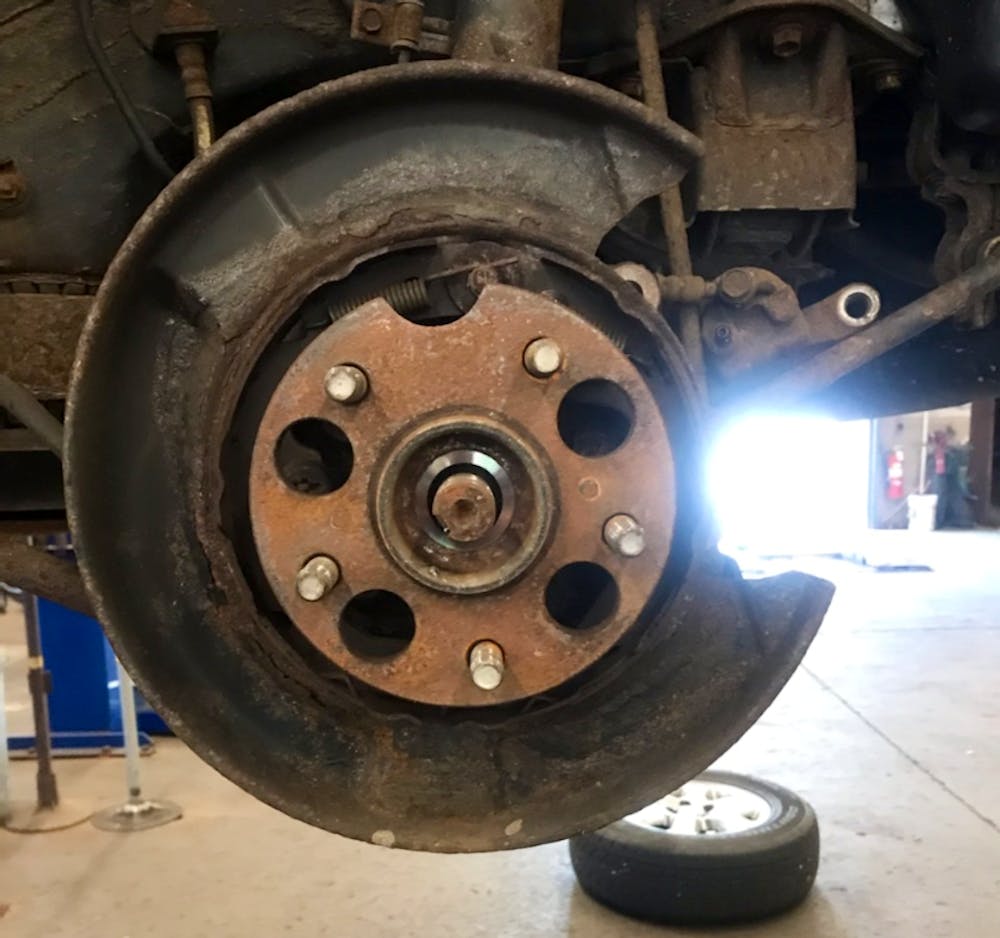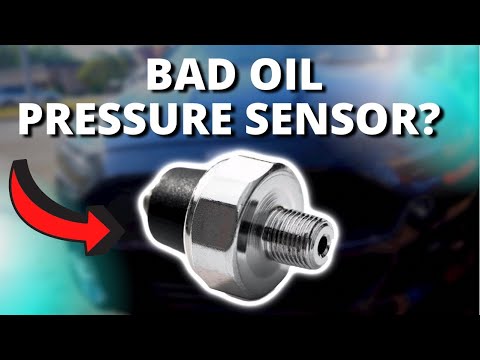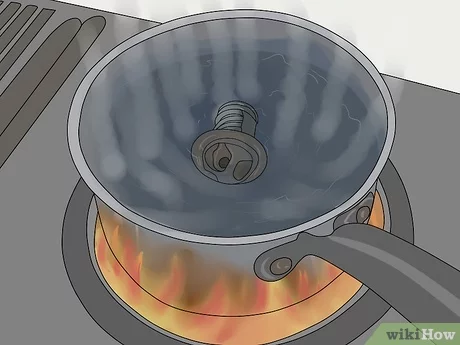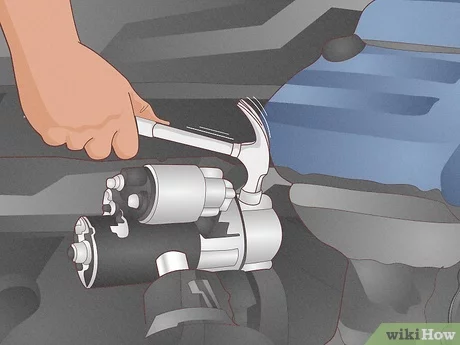Can a Bad Oil Cooler Cause Coolant Loss
Yes, a faulty oil cooler can lead to coolant loss. Damage to the cooler may cause coolant to leak externally or internally.
A bad oil cooler is often an overlooked culprit behind coolant loss in vehicles. Engine oil and coolant pass through separate chambers in the oil cooler, with the critical function of regulating the oil temperature. A malfunctioning oil cooler can compromise this separation, potentially causing coolant to leak and lead to overheating.
Understanding the significance of prompt maintenance is vital, as a compromised oil cooler not only causes coolant loss but can also result in oil contamination and severe engine damage. Early detection of oil cooler issues is essential for vehicle health and can save owners from costly repairs. Regular checks can identify leaks or drops in coolant levels, which may indicate a failing oil cooler in need of immediate attention.

Credit: rennlist.com
The Role Of An Oil Cooler In Vehicle Engines
Like a superhero protecting its city, an oil cooler guards the engine against the enemy of heat. The oil cooler is key to a healthy engine, making sure it stays at just the right temperature. Let’s dive into the fascinating world of engine lubrication and temperature control, important facts that keep vehicles running smoothly.
Basics Of Engine Lubrication
- Engine oil reduces friction between moving parts.
- It helps remove heat from the engine.
- Lubrication prevents wear and tear, extending engine life.
Ever wonder why the engine doesn’t burn up from all that movement? It’s the oil! This liquid magician keeps parts moving without sticking. But to stay cool itself, it needs a little help – that’s where the oil cooler comes in.
How Oil Coolers Maintain Temperature Balance
An oil cooler works like a radiator’s cooler cousin. It keeps the engine oil from getting too hot. This balance is crucial for two reasons:
- Hot oil can break down and damage the engine.
- Overheating oil can lead to poor vehicle performance.
But can a bad oil cooler lead to coolant loss? It sure can. Coolant is part of the temperature control team. If the oil cooler is damaged, it might leak and lose coolant. That’s bad news for the engine.
The oil cooler uses cooling fins and flow tubes to do its job. These parts get rid of excess heat. They keep the engine purring by keeping the oil just right, not too hot and not too cold.
In essence, an oil cooler manages engine temps like a thermostat in your home. It turns on the AC when things get hot. Without it, the engine could face serious troubles, and you could see signs like coolant vanishing without a trace.
Credit: www.reddit.com
Signs Of A Faulty Oil Cooler
Oil coolers play a crucial role in maintaining your engine’s health. Think of an oil cooler as your engine’s personal radiator. It keeps the oil at the right temperature. But when it fails, it can cause coolant loss among other issues. Know the signs of failure to act fast. Spotting trouble early saves your engine from disaster. Stay alert to the telltale signs. Let’s explore what to look for.
Identifying Oil In The Coolant
Finding oil in your coolant is a red flag. Check the coolant reservoir. Look for a milky, brownish substance. This mixture shows a breach in the oil cooler. It’s where the oil seeps into the cooling system. Don’t ignore this sign.
- Inspect the coolant reservoir regularly
- Spot changes in the coolant’s color or texture
- Note any oily surface or milky appearance
Abnormal Engine Temperatures
Boldly noticeable, rising engine temperatures signal trouble. Watch your dashboard gauge. Does it show higher readings than usual? It’s time to check the oil cooler. An ineffective cooler means oil can’t lose heat. Hot oil fails to lubricate engine parts well. This increases wear and tear. Remember, prevention is better than costly repairs.
| Check these frequently: |
|---|
| Dashboard temperature gauge |
| Cooling system leaks |
| Oil cooler’s physical condition |
Stay keen on these signs. Address issues quickly to safeguard your engine. Regular maintenance is crucial. It ensures your vehicle runs smoothly.
Link Between Oil Cooler Malfunction And Coolant Loss
When your vehicle’s oil cooler fails, it can lead to coolant loss. The oil cooler keeps engine oil cool. It uses coolant to remove excess heat from the oil. If it malfunctions, the coolant can leak.
Leakage Through Failed Seals And Gaskets
Seals and gaskets act as barriers between the oil cooler and engine parts. Over time, they can wear out. Worn seals and gaskets can lead to leaks. Coolant escaping through these leaks contributes to coolant loss.
- Repeated heating and cooling cycles cause these parts to fail.
- Checking for visible leaks can indicate seal or gasket issues.
Cracks And Damage To The Oil Cooler
Physical damage to the oil cooler can occur. Cracks or punctures are serious. They can cause coolant to leak from the system.
- Regularly inspect the oil cooler for signs of damage.
- Address cracks immediately to prevent further coolant loss.
Physical impacts or debris can damage the oil cooler. Even minor damage can worsen over time.

Credit: www.carparts.com
Diagnosing Oil Cooler Issues
When suspecting a faulty oil cooler as the culprit for coolant loss, a systematic approach is essential to diagnose the problem accurately. Here we delve into two important diagnostic methods.
Pressure Testing The Cooling System
Pressure tests help locate leaks in the cooling system. Follow these steps for an effective pressure test:
- Ensure the engine is cool.
- Attach a pressure tester to the radiator cap.
- Pump the tester to apply pressure.
- Watch for a decrease in pressure, indicating a leak.
Leaks might signify oil cooler failure. A steady pressure suggests the cooler’s integrity is intact.
Visual Inspection Protocol
A thorough visual check can reveal issues with the oil cooler. Inspect the following:
- Cooler unit for cracks or damage.
- Hoses connected to the oil cooler for leaks.
- Oil and coolant for cross-contamination.
Spotting oil in the coolant or vice versa can point to a failed oil cooler seal or other damages. Immediate action prevents further engine harm.
Consistent monitoring and these diagnostic methods are key in pinpointing oil cooler failures and preventing costly repairs.
Repair Or Replace: Addressing A Compromised Oil Cooler
Discovering coolant loss in your vehicle could point to a faulty oil cooler. This critical component is designed to regulate the temperature of your oil and coolant, and a malfunction can lead to serious engine damage. Assessing whether to repair or replace a compromised oil cooler is essential for maintaining your vehicle’s health.
Step-by-step Replacement Guide
Replacing an oil cooler requires precision and attention to detail. Follow this guide to ensure a safe and effective replacement.
- Drain the coolant and oil from your vehicle.
- Disconnect the battery to ensure safety.
- Remove any parts obstructing access to the oil cooler.
- Unbolt the old oil cooler and carefully remove it.
- Compare the new cooler with the old one to ensure compatibility.
- Install the new oil cooler, securing it firmly in place.
- Reconnect any parts that were removed.
- Refill the system with fresh oil and coolant.
- Reconnect the battery and start the engine to check for leaks.
When Is Repair A Viable Option?
Sometimes an oil cooler can be repaired instead of replaced. Consider repair if the damage is minimal and confined to areas like the seals or gaskets.
- Inspect the oil cooler for minor leaks or damage.
- Determine if the issue is with seals or gaskets.
- If replaceable parts are the issue, order the correct parts.
- Replace the compromised seals or gaskets.
- Perform a leak check post-repair to confirm the fix is successful.
Promptly addressing a compromised oil cooler can save you from more severe issues. Whether it’s a repair or replacement, the right action will protect your engine and prevent further coolant loss.
Preventing Future Oil Cooler Failures
An oil cooler plays a crucial role in maintaining your engine’s health. It regulates the temperature of engine oil. A faulty one can lead to loss of coolant. To avoid this, proactive measures are necessary. By adhering to routine maintenance and using quality replacement parts, you can significantly reduce the chances of future oil cooler problems.
Routine Maintenance Tips
Regular checks are key to oil cooler longevity. These tips can help:
- Inspect the oil cooler regularly for any signs of wear or damage.
- Check coolant levels often and refill as needed to prevent overheating.
- Monitor engine temperature to ensure it stays within safe limits.
- Change your oil and filter at intervals recommended by your vehicle’s manufacturer.
- Flush the cooling system periodically to remove debris and buildup.
Importance Of Quality Replacement Parts
When replacing any part of the cooling system, choosing high-quality components is non-negotiable. Quality parts:
| Offer Better Performance | Ensure Longevity | Provide Value for Money |
|---|---|---|
| Enhance heat dissipation. | Resist wear and corrosion. | Reduce the need for frequent replacements. |
Always invest in reputed brands and seek a professional mechanic’s advice. Fitment and compatibility with your vehicle model are essential.
Frequently Asked Questions On Can A Bad Oil Cooler Cause Coolant Loss
Can A Faulty Oil Cooler Lead To Coolant Loss?
Yes, a faulty oil cooler can lead to coolant loss. This typically happens when the oil cooler’s internal seals fail. This allows engine oil and coolant to mix, resulting in coolant loss through the oil system or visible oil contamination in the coolant reservoir.
How Does An Oil Cooler Malfunction Cause Engine Issues?
An oil cooler malfunction can cause engine overheating and reduced lubrication efficiency. The coolant’s contamination with oil can lead to poor heat dissipation. This may result in engine damage due to overheating or insufficient lubrication of the engine components.
What Signs Indicate A Bad Oil Cooler?
Signs of a bad oil cooler include coolant in the oil, oil in the coolant reservoir, engine overheating, and white smoke from the exhaust. Leaks around the oil cooler and abnormal engine noises can also suggest an oil cooler issue.
Is It Safe To Drive With A Damaged Oil Cooler?
Driving with a damaged oil cooler is not safe. It can lead to serious engine damage, overheating, or a complete engine breakdown. Promptly repairing or replacing a faulty oil cooler is crucial to safeguard the vehicle’s engine.
Conclusion
Summing up, a faulty oil cooler can indeed trigger coolant loss, leading to serious engine issues. Regular maintenance is key in preventing such problems. By staying vigilant, car owners can ensure their vehicles run smoothly and avoid costly repairs. Remember, early detection and action can save both time and money down the road.

